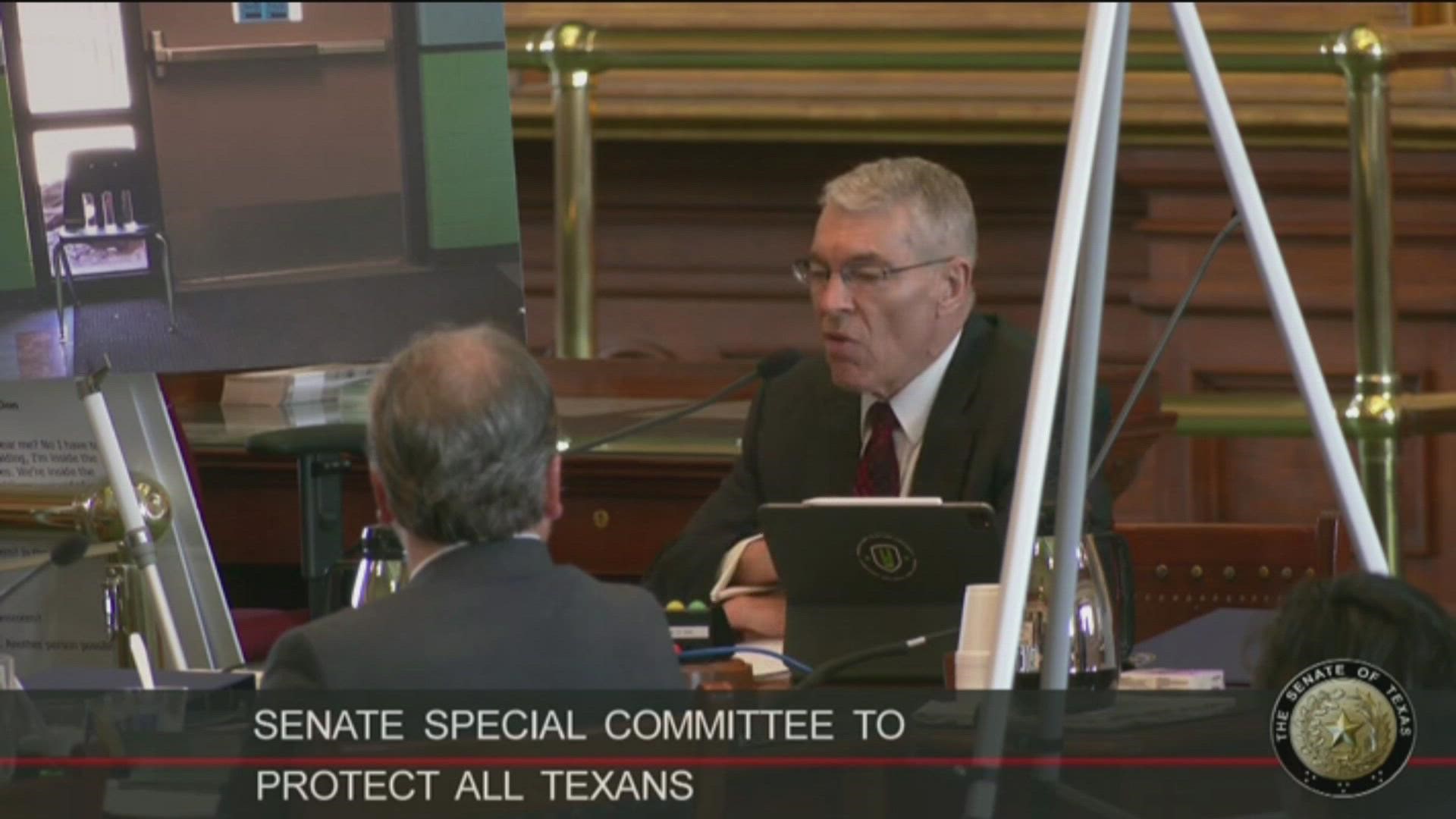AUSTIN, Texas — The head of the Texas Department of Public Safety (DPS) testified before a special Senate committee on Tuesday, acknowledging the errors in law enforcement's response to the mass shooting at Robb Elementary School in Uvalde on May 24.
DPS Director Steve McCraw described law enforcement's efforts to stop the gunman as an "abject failure."
McCraw's testimony appeared to offer the most complete version of what happened on the day of the shooting. Here's a breakdown of three main takeaways from his testimony:
Officers could've acted faster
First, officers took more than an hour to stop the gunman, but McCraw said it could have been done within three minutes.
Uvalde school district police chief Pete Arredondo said officers needed rifles. But McCraw pointed out that the first officers on the scene were armed.
"You have a gun. His reason: you have one, you have body armor. So, it is going to be risky, officers – and Chief Arredondo was right. Officers are likely to get hurt and some may die, but it's less likely that they would then, then children without the armor, without the weapons, without the training," McCraw said.
Surveillance and body camera video has also recently revealed that some officers did have rifles inside the school and appeared to wait before going to the classroom.
The classroom doors were likely unlocked
The second key takeaway from McCraw's testimony had to do with locked classroom doors.
Officials previously said officers waited for a key to unlock the classroom door. But McCraw said the door to the classroom where the gunman was could not be locked from the inside, meaning it was most likely unlocked.
According to McCraw's testimony, it appears officers never checked to see if they could open the door.
Radio reception caused communication problems
The third key takeaway: communication was a major issue. McCraw said there was a series of communication failures among responding officers, including problems with radio reception.
McCraw confirmed that Arredondo arrived to the school without a radio and officers lost radio communications once inside, forcing them to switch to cellphones.
"So, the cellular backbone was sufficient in Uvalde that day. That's how the chief communicated with the dispatcher ... So, cellphones work. It's the portable radios that first responders have [that] didn't. Irony of ironies," McCraw said.
McCraw told the special Senate committee that radios should be tested in school buildings during shooting training to make sure this problem never happens again.
The Senate Special Committee to Protect All Texans will meet again Wednesday starting at 9 a.m. Public testimony will focus on mental health and firearm safety.
PEOPLE ARE ALSO READING:

